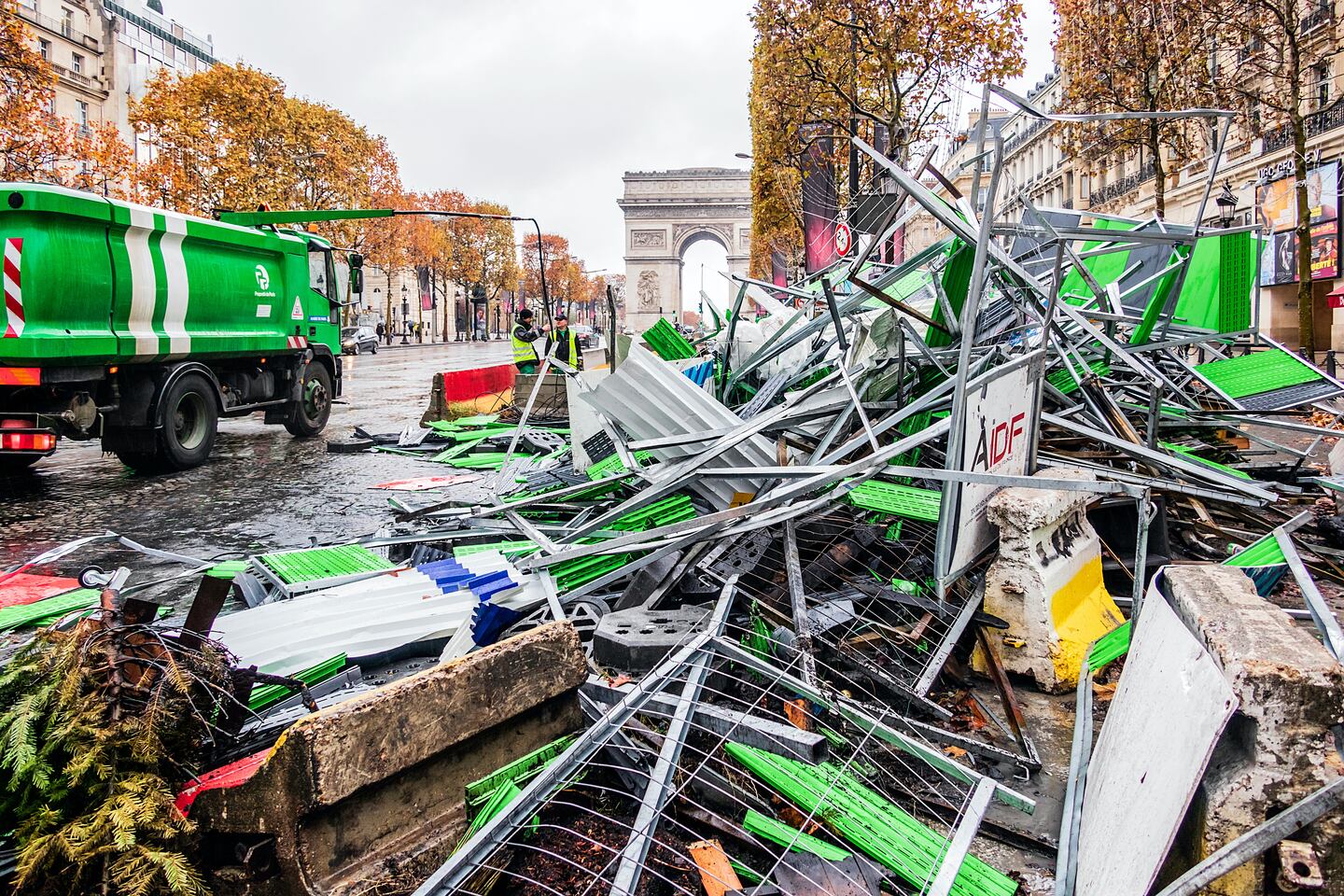
The Business of Fashion
Agenda-setting intelligence, analysis and advice for the global fashion community.

Agenda-setting intelligence, analysis and advice for the global fashion community.

PARIS, France — Some of Paris' top department stores, from Printemps to Galeries Lafayette, have had to shut their doors as the third week of protests in Paris became violent.
Demonstrators, known as “gilets jaunes” or yellow vests, took to the streets in early November to protest against a planned hike in taxes on diesel and petrol. But as of last week, the revolt — considered the city’s worst civil unrest in a decade — has grown to encompass a long list of grievances against government policies, from social injustice and educational reform to the marginalisation of rural areas and rising living costs.
Speaking to local media, Paris' mayor Anne Hidalgo estimates that the protests thus far have caused 3 to 4 million euros ($3.4 to $4.5 million) worth of damages. Iconic monuments at the Arc de Triomphe, Tuileries Gardens and Place Vendome have been vandalised, while three deaths and hundreds of injuries have been reported.
While some incidents occurred in French cities like Avignon, Lille and Marseille, there has also been much unrest centred on Paris' luxury retail hotspots like the Champs Élysées, Rue Saint-Honoré and Avenue Montaigne — home to luxury players such as Chanel, Louis Vuitton and Balenciaga.
ADVERTISEMENT
Many shops, including Galeries Lafayette and Printemps, were shut on December 1, and storefronts belonging to brands such as Burberry's were damaged. The retailers declined to comment. According to French finance minister Bruno Le Maire, some brands have seen sales plummet by around 20 to 40 percent since the demonstrations began.
You don't want to shop at Louis Vuitton on the Champs Élysées when cars are burning on the street. You don't want to walk around with an Hermès bag when there's a violent protest happening.
For Mario Ortelli, managing partner of luxury advisors Ortelli & Co, there has been a clear impact on domestic and travel consumption. "You don't want to shop at Louis Vuitton on the Champs Élysées when cars are burning on the street. You don't want to walk around with an Hermès bag when there's a violent protest happening," he says.
The unrest could deter Chinese tourists, who spent more than 4 billion euros ($4.6 billion) in 2017 — more than any other non-European French visitors — according to the Bank of France. Indeed, following Paris’ terrorist attacks in 2015, the French Tourism Office recorded a 25 percent decline in Chinese tourism in the following year.
“Most of my Chinese friends are thinking of leaving Paris…there are so many places to stay or visit, like London,” says Shanghai native Iris Yang, who moved to the French capital this year. “Why should we stay or come here? It’s too risky.”
The protests come at an unfortunate time as the holiday shopping season begins — one of the most important periods of the year for luxury brands. “This is a peak time for full-price sales in Europe, so you could lose the window of opportunity if people delay their purchases and shop when products are marked down,” says Ortelli. And with a fourth demonstration planned for December 8, retailers’ worries are far from over.
However, Patrice Novel, chief executive of digital agency Fabernovel Asia, is optimistic that France’s tourism industry will bounce back, as it did after the 2015 attacks. “This social event is quite damaging for the international image of Paris as a travel destination,” he acknowledges. “But from past observations, that impact on tourism will be limited in time [and] things will get back to normal.”
Related Articles:
[ Is France Awakening to New Opportunity?Opens in new window ]
[ In Wake of Terror Attacks, What Lies Ahead for France’s Luxury Industry?Opens in new window ]
The LVMH-linked firm is betting its $545 million stake in the Italian shoemaker will yield the double-digit returns private equity typically seeks.
The Coach owner’s results will provide another opportunity to stick up for its acquisition of rival Capri. And the Met Gala will do its best to ignore the TikTok ban and labour strife at Conde Nast.
The former CFDA president sat down with BoF founder and editor-in-chief Imran Amed to discuss his remarkable life and career and how big business has changed the fashion industry.
Luxury brands need a broader pricing architecture that delivers meaningful value for all customers, writes Imran Amed.